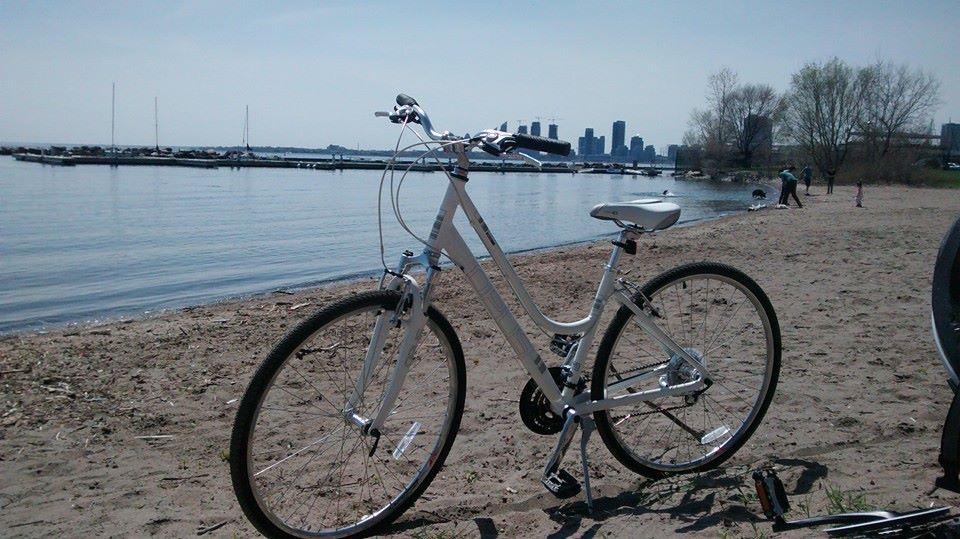It is rare to find a person that has learned since a young age the importance of money and budgeting. I am not talking about spending money, because most of us are really good at that; or to be rich, because we all want to be that. I mean financial education.
Money is not the struggle. Our choices are the struggle.
The current educational system lacks that approach. It is not something that our parents talk about, neither our teachers, and the reason for that is that they don’t even know how money works and may not know how to budget at all.
The concept is basic, but to get there you need a lot of commitment and a goal. You don’t need to be making $100,000 a year, but if you are, well, excellent! Then, you’ll be able to reach your goal faster. The most important thing is for you to live well below your means, be truly happy with that and save or invest the rest.
You may say, “Easy for you, I have a huge student loan”, or a big credit card balance, car loan, mortgage. It is fine. Take this situation as the fuel to push you up to infinity and beyond (I watched Toy Story today). Every step, think how closer you are to your goal, and the way it was like to be on the other side of the story. Here are a few tips to get you started:
How much are you spending each month? How does budgeting works?
Take a look at the last year of statements of your credit or debit card. It is important to be this long as sometimes we have yearly subscriptions and a monthly snapshot won’t capture the whole image.
Use Google Sheets or Excel. Name each column with the 12 months of the year and on each row add each individual category charge. You’ll end up with a big matrix. If this makes you feel overwhelmed, it is a good start because it will make you realize all the things you buy that most probably you don’t need. Take a look at my article Exposed! Monthly Spend 🙂
Budgeting, budget, budget…
You can find different versions of percentages for each of the following categories. Remember that we are trying to minimize expenses and maximize happiness. Find a balance and compromise in the amount of money you are willing to give away for the amount of happiness you will receive. Consider the following categories:
Housing
- Mortgage, rent, property taxes, condo fees.
- The goal here is to buy a simple house in the best neighbourhood you can afford. You don’t want to be in the opposite scenario, where you have a nicer house in a not desirable neighbourhood. Use Youtube and learn how to paint your walls and fix up your house.
- Don’t be a house rich. This means living in a super house with a super high mortgage and not being able to afford anything else.
- As convenient as it may sound, condo/strata fees eat away your cash flow. Try to buy a freehold.
- If you rent, look for cheaper options around. Negotiate with your landlord and sign a contract for a year for cheaper rent.
- Rent as close as possible to your current job. Walking distance preferably. Fresh air every day, no fossil fuels burning and a bit of exercise, triple win!
Transportation
- Car loan, car insurance, gas, maintenance, AAA/CAA, car washes.
- Do you really need a brand new car every other year? You don’t. Buy a good, used and reliable car not older than 5 years old.
- If you have savings, pay cash for your car. Or if you are leasing, consider not renewing your lease and buy a used one.
- No more car washes. Take a bucket, a rag and exercise a bit.
- Most likely you won’t need a car membership, like AAA/CAA, if you are afraid that one day your car may break down and needs to be towed, don’t worry, pay it from your pocket. You’ll save more in the long term.
- Take your car for a service or for an oil change. It will cost you more to buy a new car than to take good care of the current one. Prevention rather than reaction.
Main Services
- Hydro, water and gas bills.
- Turn the lights off when not in the room.
- Use your appliances when the electricity costs less.
- Hang dry a few pieces of clothing.
- Get rid of your grass if you live in a climate that doesn’t make sense to have grass.
- Wash your clothes with cold water.
Other services
- Netflix, cell phone, home phone, cable, Amazon, Spotify.
- Cancel your cable, Spotify premium and home phone. Watch Youtube, listen to the radio, borrow a book or a movie from the library.
- Shop around for a better rate for your phone.
- Budgeting on non-essential areas is a must to avoid overspending.
Food
- Groceries, eating out.
- Go to Walmart for grocery shopping, there’s nothing wrong with buying your food from Walmart. Most likely, is the cheaper option wherever you live.
- Buy the house brand. It will save you a lot of money.
- Set up a top amount for eating out each week. If you exceed it, is time to get creative and cook at home.
- Plan your meals for the week based on what you currently have on your fridge, pantry or freezer. Just buy the items needed to complete the meals; this will make your grocery bill extremely low and still have extra food money for the week. Now is the time to buy as much as you can on sale remembering not to exceed your weekly budget.
Entertainment
- Movie tickets, museums, fun stuff, cash.
- Set up a max amount a month and stick to it, just like eating out.
- Be creative. Google and find free events around. Try Eventbrite.
Personal
- The budgeting money you get to spend on whatever you want that does not belong to any of the other categories. It is important to have a set amount to spend on you to be your reward for the month.
- What about clothes or shoes? You most likely have too many of those. In this case, try getting rid of the old stuff, donating the ones in good condition and selling the best ones you don’t use.
Challenge yourself and do it for a few months. After that, you need to come up with a realistic plan for each category. Do not try to fool yourself. Your new budgeting habit may look as follows:
Use your total monthly gross income
- Housing: 30%
- Entertainment: 10%
- Transportation: 15%
- Food: 15%
- All services: 10%
- Personal: 5%
- Left: 15%
If you stick to the previous budget, you have 15% to save, invest or pay off debt. Try to save more if you can. Pay off that credit card or loan faster. Invest in your retirement fund. My current transportation amount is 2.65%, basically car insurance and one tank of gas. I sometimes walk to work and my partner bikes, so the car is not used too much.
“A year from now you may wish you had started today”
Karen Lamb
Do not think too much about it and just get started.



